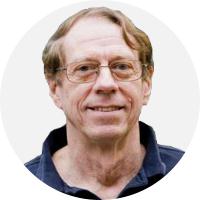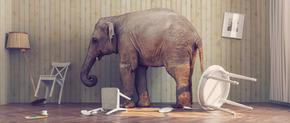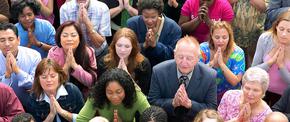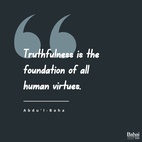The views expressed in our content reflect individual perspectives and do not represent the official views of the Baha'i Faith.
Ultimately, the institutions of society, no matter how well-conceived, will fail to function as intended if the people within them are self-serving, dishonest or corrupt.
On the other hand, even poorly-designed institutions can perform well if those within them have high ethical standards and are motivated to be of service to others.
So it is not enough to transform the structures and processes of society if people are not also changed.
While we may not be able to do much about others around us, we can always start with ourselves. As we learn about self-transformation, we can both become an example for others to follow and accompany others on their own life journeys:
… love humanity with all your heart and soul. If you meet a poor man, assist him; if you see the sick, heal him; reassure the affrighted one, render the cowardly noble and courageous, educate the ignorant, associate with the stranger. Emulate God. Consider how kindly, how lovingly He deals with all, and follow His example. You must treat people in accordance with the divine precepts – in other words, treat them as kindly as God treats them, for this is the greatest attainment possible for the world of humanity. – Abdu’l-Baha, The Promulgation of Universal Peace, p. 291.
This stage in our quest for a more just and ecologically-balanced world begins with individual discovery and development, especially your own.
While you want to be one of the many well-intentioned individuals who work to improve the society around you, you may often feel that you face insurmountable obstacles. Your hopes may flounder if you share the erroneous assumptions about human nature – that we are incorrigibly selfish and aggressive and incapable of creating a just social system.
These assumptions so permeate the structures and traditions of present-day living as to be considered established fact. They appear to make no allowance for the extraordinary reservoir of spiritual potential available to us and to any illumined soul who draws upon it. Instead, they rely for justification on humanity’s failings, examples of which daily reinforce a common sense of despair. These false premises obscure the fundamental truth – that the current state of the world reflects a distortion of the human spirit, not its essential nature.
So how do we transform ourselves and develop the spiritual capacities to contribute to a process of societal change?
Perhaps the most important factor is our own belief that we can change. If we start with this, change can happen. Change also requires courage. We need to be brave enough to face our inner shortcomings or external threats, not to give up or yield to pressures to conform, and to continue even when the going gets tough. Courage can be learned. If our moral foundation is strong enough, we can resist anything, even if it means giving up our life for our beliefs, as many examples in history attest.
This leads each of us to one of the most critical questions that we will face: What am I going to do with my own life?
Just as a scientific discovery can be put to good or bad uses, so can our human potential be turned to good or bad ends, or be fulfilled with good or bad means. The choice is up to us, no one else. We can become greedy bankers building a fortune at the expense of others, employers exploiting poor laborers, corrupt politicians or drug traffickers. Or we can make important scientific discoveries, organize humanitarian assistance, devote ourselves to teaching young people or creating beautiful works of art. But even when the end benefits society, we can be driven by pride, ego or a desire for fame and recognition, stooping to anything to achieve our end.
Notice the difference between these different kinds of successes: a promotion of self and disregard for the suffering of others, or a humble desire to be of service to humanity:
God has given us eyes, that we may look about us at the world, and lay hold of whatsoever will further civilization and the arts of living. He has given us ears, that we may hear and profit by the wisdom of scholars and philosophers and arise to promote and practice it. Senses and faculties have been bestowed upon us, to be devoted to the service of the general good; so that we, distinguished above all other forms of life for perceptiveness and reason, should labor at all times and along all lines, whether the occasion be great or small, ordinary or extraordinary, until all mankind are safely gathered into the impregnable stronghold of knowledge. We should continually be establishing new bases for human happiness and creating and promoting new instrumentalities toward this end. How excellent, how honorable is man if he arises to fulfil his responsibilities; how wretched and contemptible, if he shuts his eyes to the welfare of society and wastes his precious life in pursuing his own selfish interests and personal advantages. Supreme happiness is man’s, and he beholds the signs of God in the world and in the human soul, if he urges on the steed of high endeavor in the arena of civilization and justice. – Abdu’l-Baha, The Secret of Divine Civilization, pp. 3-4.
The biggest challenge you face in life is yourself. We are born with the potential for both good and evil; with evil being the absence of good as darkness is the absence of light.
As a child, it is natural for us to think of ourselves first and to form an ego. But, if we want to be an adult who is successful and beneficial to society and ultimately to ourselves, we must then learn to master our inner egotistical side and to turn outwards. This is never easy and it is a struggle that will continue for all of our life – for the selfish side of ourselves is never totally defeated.
This is a universal theme in all civilizations, from Greek mythology and tragedies to modern literature. It is also at the heart of all religious traditions and, in fact, religion could be described as the dimension of civilization that is specialized to address this part of us. Saints and sinners, heaven and hell, reincarnation, nirvana, salvation, the right way – these all represent ways of giving form to our basic struggle with ourselves and the options before us. Arthur Lyon Dahl’s new book In Pursuit of Hope, A Guide for the Seeker, published by George Ronald Books, is available here.

















Comments
Sign in or create an account
Continue with Facebookor